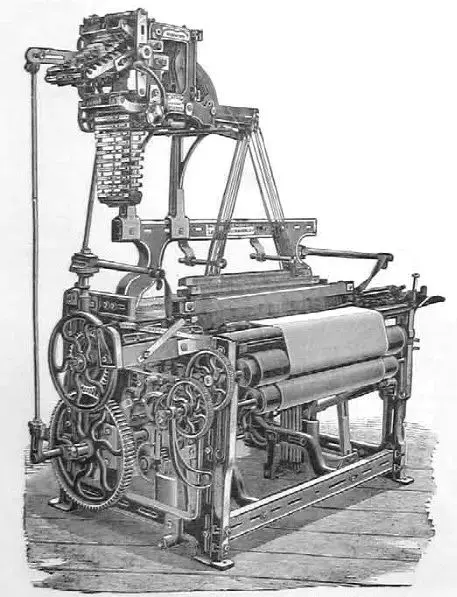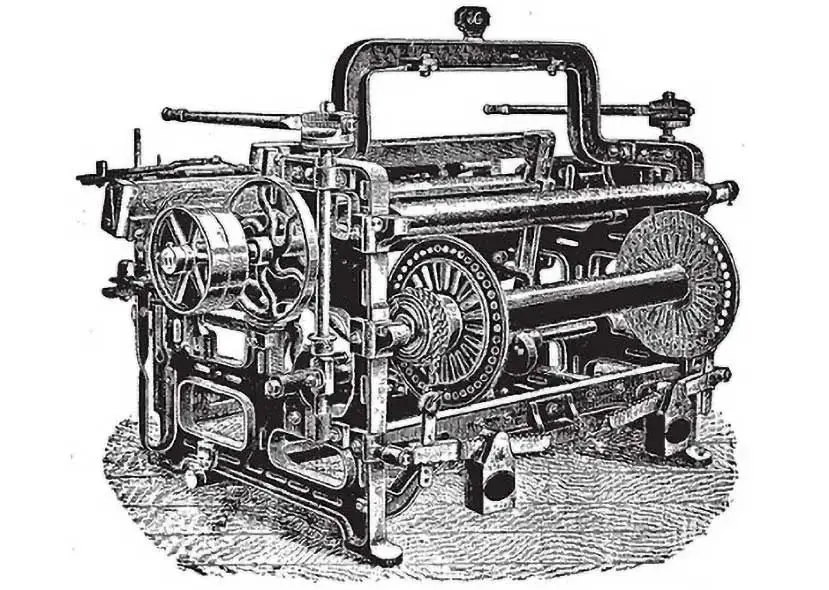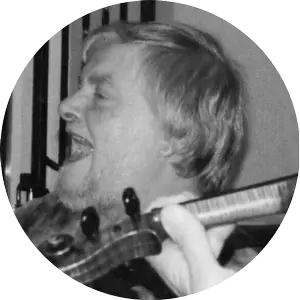
Catlow’s Patent Dobby Power Loom
Poverty Knock
"This work song dates back to the early Dobby power looms. Owing to low wages and the slow dreary “knock-ity knock” sound of the looms, weavers were called “Poverty Knockers”.
The tempo should be slow 3/4, but strongly accentuated."
Original note by Tommy Daniel
Tommy said he had picked up the song at the first mill he worked at on leaving school.
About verse 5, ‘Sometimes a shuttle flies out ’, Tommy explained the point of it was that the weavers were on piecework (paid wages according to the amount produced) and could not afford to stop working to help an injured workmate.


